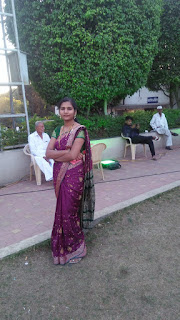BLACK STUDIES/BLACK CONSCIOUSNESS
This was one of the earliest models for cross-cultural studies of peoples affected by colonization, and centred on African peoples who had been transported,enslaved or otherwise made diasporic by colonialism and by slavery. It developed mainly in the United States. In the nineteenth century, black American intellectuals such as Frederic Douglas BLACK STUDIES/BLACK CONSCIOUSNESS 23 (circa 1817–1895), Booker T. Washington (1856–1901) and W.E.B. du Bois (1868–1963), men who had either been born slaves or were the children of slaves, as well as others like Marcus Garvey (1887–1940), a Jamaican who settled in the United States, had developed a body of texts and institutions dedicated to black education and black development. Many colleges were founded, through their inspiration, to educate black Americans.
These included Wilberforce College, Lincoln College, Howard Universuty, Tuskegee Institute and Fisk University. These intellectuals advocated an investigation of the distinctiveness of the African cultural elements in black American and Caribbean societies. Cultural historians such as Paul Gilroy have argued that these links across and between the various regions where black diasporic intellectuals had emerged formed a crucial part of the emergence of a distinctive and transnational movement, which he has dubbed the Black Atlantic. The widespread growth of Black (variantly African American or African Caribbean) Studies followed the Civil Rights activism of the 1960s.Black Studies rapidly established itself in United States institutions as a powerful model to investigate any and all aspects of the African negro diaspora. It encouraged investigations of African origins for American and Caribbean language usage and cultural practices (see creole), and examined the cross-cultural influence on Africa itself of American and Caribbean intellectuals such as Alexander Crummell (1819–1898) and Edward Wilmot Blyden (1832–1912),who had been so influential there in the nineteenth century with the founding of colonies of freed slaves in Liberia and Sierra Leone. Influenced in part by the example of the francophone movement of négritude, Black Studies both predated and outlasted that movement. In the 1960s it embraced many of the ideas developed by Fanonist thinkers and,in the form of the black consciousness movement, sought to redress the negative self-image created in many black people by their long history of enslavement and discriminatory treatment, treatment made inescapable, as Fanon had noted, by the visibility of their perceived ‘difference’ (‘The Fact of Blackness’ in Fanon 1952: 109–140). Various movements in different parts of the world have embraced elements of the black consciousness programme, for example in Australia and New Zealand, where Australian Aboriginal and Maori groups have used the concept of ‘blackness’ as an ethnic signifier, and among the many diasporic ‘peoples of colour’ who now make up an increasing proportion of the people of the old European metropolitan centre where the term ‘black’ has been employed to identify a new ethnicity (Hall 1989).
This was one of the earliest models for cross-cultural studies of peoples affected by colonization, and centred on African peoples who had been transported,enslaved or otherwise made diasporic by colonialism and by slavery. It developed mainly in the United States. In the nineteenth century, black American intellectuals such as Frederic Douglas BLACK STUDIES/BLACK CONSCIOUSNESS 23 (circa 1817–1895), Booker T. Washington (1856–1901) and W.E.B. du Bois (1868–1963), men who had either been born slaves or were the children of slaves, as well as others like Marcus Garvey (1887–1940), a Jamaican who settled in the United States, had developed a body of texts and institutions dedicated to black education and black development. Many colleges were founded, through their inspiration, to educate black Americans.
These included Wilberforce College, Lincoln College, Howard Universuty, Tuskegee Institute and Fisk University. These intellectuals advocated an investigation of the distinctiveness of the African cultural elements in black American and Caribbean societies. Cultural historians such as Paul Gilroy have argued that these links across and between the various regions where black diasporic intellectuals had emerged formed a crucial part of the emergence of a distinctive and transnational movement, which he has dubbed the Black Atlantic. The widespread growth of Black (variantly African American or African Caribbean) Studies followed the Civil Rights activism of the 1960s.Black Studies rapidly established itself in United States institutions as a powerful model to investigate any and all aspects of the African negro diaspora. It encouraged investigations of African origins for American and Caribbean language usage and cultural practices (see creole), and examined the cross-cultural influence on Africa itself of American and Caribbean intellectuals such as Alexander Crummell (1819–1898) and Edward Wilmot Blyden (1832–1912),who had been so influential there in the nineteenth century with the founding of colonies of freed slaves in Liberia and Sierra Leone. Influenced in part by the example of the francophone movement of négritude, Black Studies both predated and outlasted that movement. In the 1960s it embraced many of the ideas developed by Fanonist thinkers and,in the form of the black consciousness movement, sought to redress the negative self-image created in many black people by their long history of enslavement and discriminatory treatment, treatment made inescapable, as Fanon had noted, by the visibility of their perceived ‘difference’ (‘The Fact of Blackness’ in Fanon 1952: 109–140). Various movements in different parts of the world have embraced elements of the black consciousness programme, for example in Australia and New Zealand, where Australian Aboriginal and Maori groups have used the concept of ‘blackness’ as an ethnic signifier, and among the many diasporic ‘peoples of colour’ who now make up an increasing proportion of the people of the old European metropolitan centre where the term ‘black’ has been employed to identify a new ethnicity (Hall 1989).






No comments:
Post a Comment